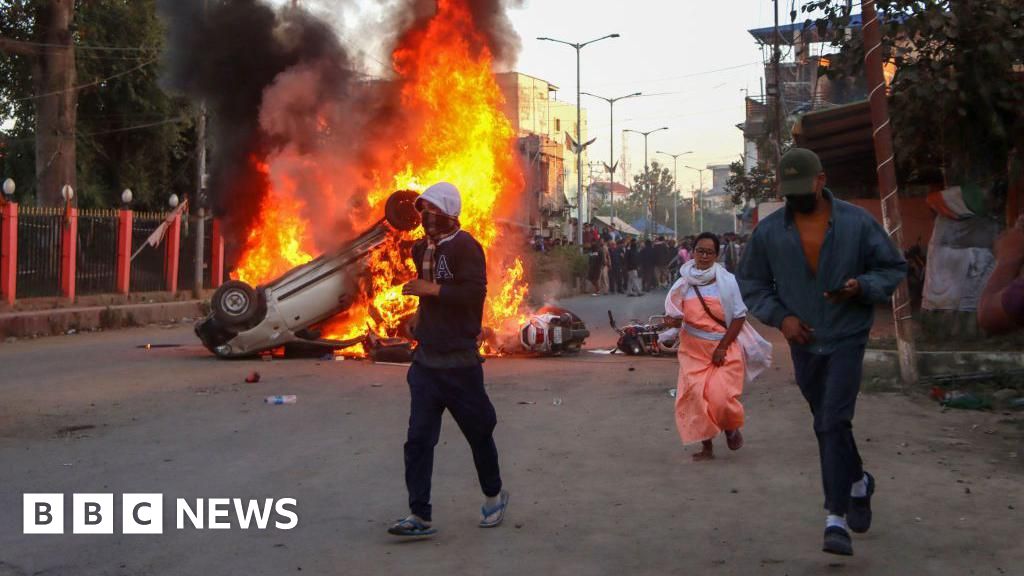 |
|
The northeastern Indian state of Manipur is grappling with a renewed surge in ethnic violence, fueled by the discovery of six bodies believed to belong to members of the Meitei community. This tragic event has ignited a fresh wave of protests and clashes between the Meitei and Kuki ethnic groups, a conflict that has tragically claimed over 200 lives and displaced thousands since its eruption in May 2023. The discovery of the bodies, which reportedly include women and children, has deepened the existing animosity and fueled accusations of abduction and targeted killings. Meitei groups allege that Kuki individuals are responsible for the abductions, a claim that police have yet to confirm. This escalation of violence prompted authorities to take swift action, implementing an indefinite curfew and suspending internet services in key areas, including the Meitei-dominated Imphal Valley and Bishnupur district. The government's response includes deploying top security officials to the region and convening high-level security meetings, led by Federal Home Minister Amit Shah, in an attempt to restore order and prevent further bloodshed. However, the state remains tense and on high alert.
The current violence is not an isolated incident but rather the latest escalation in a protracted conflict rooted in deep-seated ethnic tensions and competing claims over resources and political power. The initial spark for the conflict in May 2023 was linked to Kuki protests against demands from the Meitei community to be granted official tribal status. This demand, which would provide Meiteis with access to affirmative action and other benefits, ignited a firestorm of resistance from the Kuki community, leading to widespread clashes and displacement. The ensuing months have witnessed sporadic outbreaks of violence, punctuated by periods of uneasy calm, as the two communities remain deeply divided and mistrustful of each other. This ongoing conflict has deeply fractured Manipur, dividing the state geographically and socially. The Meitei primarily inhabit the Imphal Valley, while the Kuki reside in the surrounding hills, creating a de facto segregation reinforced by security checkpoints and buffer zones.
The recent events highlight the fragility of the peace efforts and the urgent need for long-term solutions to address the underlying causes of the conflict. The immediate focus remains on restoring order and preventing further loss of life. The authorities' actions, including imposing curfews and internet shutdowns, while intended to quell the unrest, also raise concerns about freedom of expression and the potential for further escalation. The indefinite curfew and internet restrictions hamper information flow and create an environment ripe for misinformation and rumour-mongering. The lack of confirmation from authorities regarding the identities of the six deceased further fuels speculation and distrust, making it crucial that impartial and thorough investigations are conducted to ascertain the facts surrounding their deaths. Beyond the immediate security concerns, addressing the deeper issues driving this conflict – including land rights, resource allocation, and political representation – is essential for finding a lasting resolution. This will require a sustained commitment from the government, engaging all stakeholders in a genuine dialogue to rebuild trust, address grievances, and create a more inclusive and equitable society.
Moving forward, the need for a comprehensive and inclusive approach to conflict resolution is paramount. This involves not only addressing the immediate security concerns but also engaging in a broader societal dialogue that seeks to understand and reconcile the historical grievances and competing claims of the Meitei and Kuki communities. It necessitates impartial investigations into past and present atrocities to ensure accountability and foster a sense of justice. The long-term solution requires a multi-pronged approach encompassing political reforms to ensure equitable representation, economic development initiatives to address disparities, and social programs to promote reconciliation and understanding between the communities. The international community also has a role to play in supporting India's efforts to address this complex crisis through diplomatic engagement and humanitarian aid, providing essential assistance to those displaced by the conflict. The situation in Manipur serves as a stark reminder of the devastating consequences of unresolved ethnic conflicts and the critical need for inclusive governance and conflict resolution mechanisms to prevent similar tragedies from recurring.
Source: Manipur: Fresh ethnic clashes in India state after six bodies found
